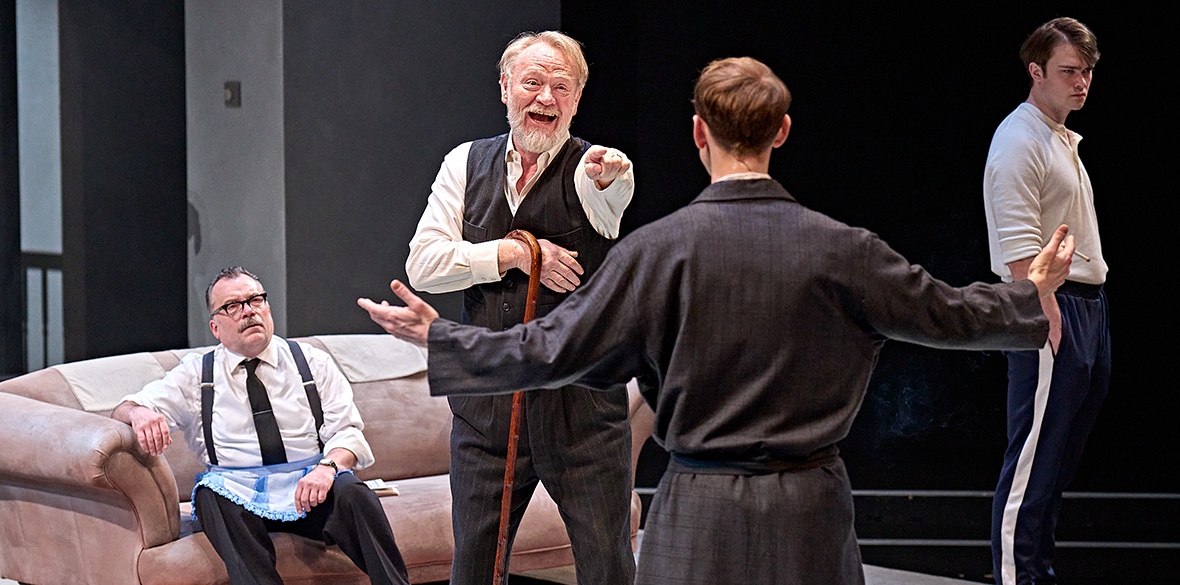This is the last article you can read this month
You can read more article this month
You can read more articles this month
Sorry your limit is up for this month
Reset on:
Please help support the Morning Star by subscribing here
The Homecoming
Young Vic
SMOKE as thick as fog looms across a large room in a ’60s London home as free jazz blares out from an old gramophone on the floor in Moi Tran’s atmospheric set for director Matthew Dunster’s revival of The Homecoming, one of Harold Pinter’s darkest plays.
The Big Smoke it may be, but it soon becomes apparent that in this testosterone-fuelled house everyone smokes like chimneys. There are no women (yet) only bitter and broken men.
Father of the house Max, absolutely nailed by Jared Harris, swings from needy attention-seeker one moment to exploding with apoplectic rage another. From the outset he’s in a constant power struggle with his brusque son Lenny (Joe Cole), whose seething hatred for his father is almost palpable.
Then there’s Max’s youngest son Joey (David Angland), a meathead with dreams of becoming a champion boxer, but his father puts him down in one of the play’s many comic turns: “You don’t know how to defend yourself and you don’t know how to attack.”
Pinter’s text teems with quirky and vibrant dialogue, with Nicolas Tennant embodying the role as Max’s brother Sam, an apparently homosexually repressed chauffeur who frequently boasts to his family that he is considered the best in the firm.
The death of Max’s late wife Jessie, who is referred to with fondness and resentment in equal measure, seems to be the source of the suffocating claustrophobia and feral energy that fills the house. So when Max’s eldest and slightly wet son Teddy (Robert Emms), a professor of philosophy, suddenly returns home from the US with his glamorously dressed wife Ruth (Lisa Diveney), a new power dynamic forms.
Ironically Max immediately assumes she’s a prostitute, and decries that any “scrubber” should lay foot in his house, yet later conspires with his sons to help get her “on the game.”
Diveney’s Ruth is pitch perfect in managing to deftly display someone who is not all what she seems; her gentle and unassuming air belies a steely toughness as she effortlessly turns the tables on any threats or advances coming her way. Her life with Teddy in the US is seemingly too dull for her and she decides to remain, while her husband returns to look after their three children alone.
In the end Ruth represents the fulfilment of the male household’s Freudian and carnal desires as mother, wife and whore. But it is she who is, finally, in charge and calling the shots as she sits in Max’s armchair stroking Joey’s hair.
Fault can easily be found in the play’s fixation on the male gaze, but it also shines an important yet disquieting spotlight on the shadow side of male sexuality.
Runs until January 27 2024. Box office: 020 7922 2922, youngvic.org







